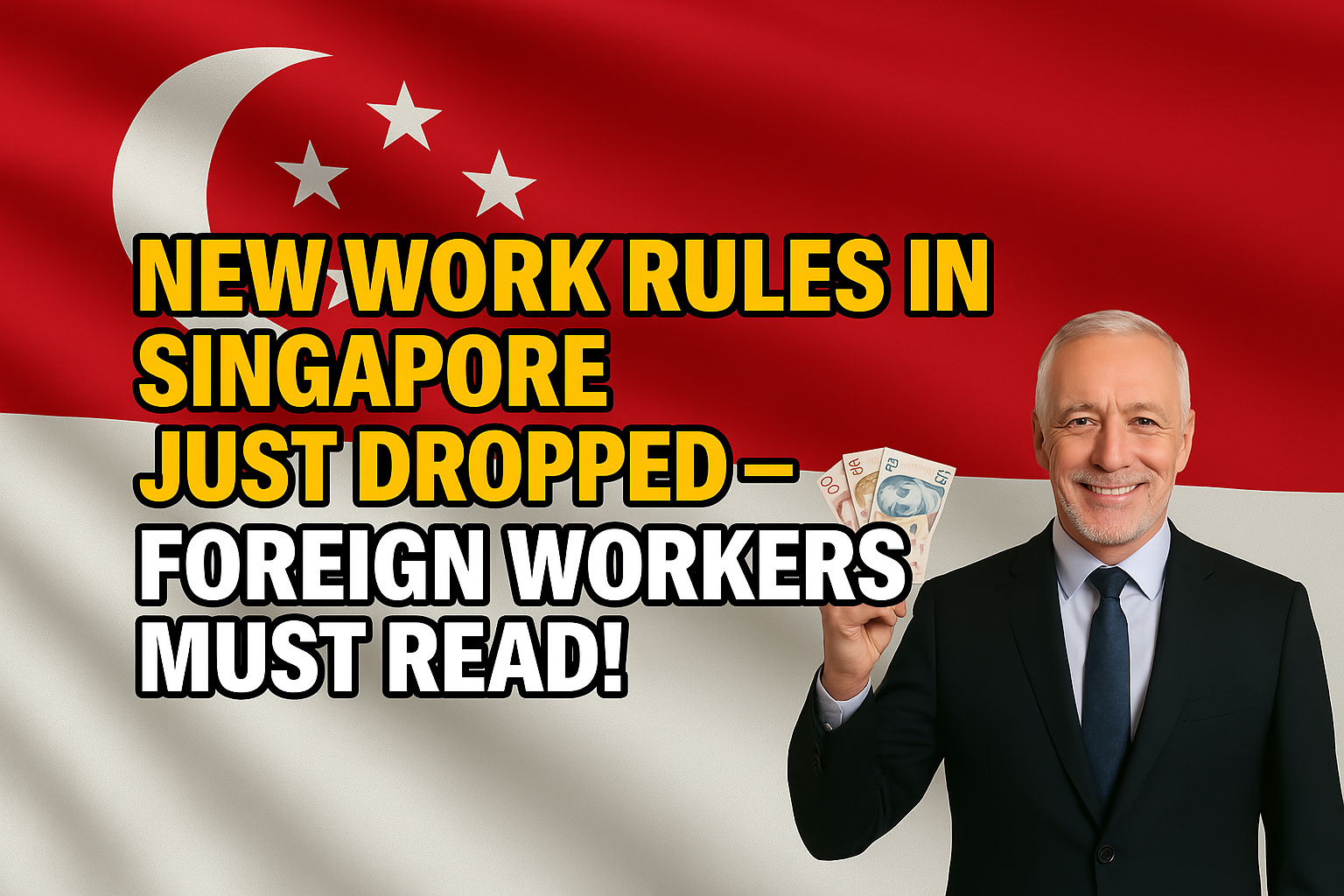Singapore’s Ministry of Manpower (MOM) has rolled out new work permit regulations in 2025, affecting thousands of foreign workers and employers across key sectors like construction, manufacturing, and services. These updates aim to streamline employment processes, protect local jobs, and boost workforce productivity.
If you’re planning to work in Singapore or hire foreign employees, this guide covers all the crucial changes, eligibility criteria, sector-specific adjustments, and how to stay compliant.
Table of Contents
- Overview of the 2025 Work Permit Reforms
- Key Changes in Work Permit Policies
- Who Is Affected?
- Sector-Specific Adjustments
- How Employers Can Stay Compliant
- Application Process & Timeline
- Helpful Resources
Overview of the 2025 Work Permit Reforms
The 2025 work permit changes are part of Singapore’s long-term labor policy strategy. The government seeks to enhance workforce quality while ensuring fair opportunities for local jobseekers. Key focus areas include:
- Raising qualifying salary thresholds
- Adjusting dependency ratios
- Enhancing training for foreign workers
- Improving employment pass assessment criteria
For an official summary of these changes, visit the Ministry of Manpower (MOM).
Key Changes in Work Permit Policies
Here’s a breakdown of the most impactful updates:
| Policy Area | Old Rule | New Rule (2025) |
|---|---|---|
| Minimum Salary | S$1,500/month | S$1,800/month |
| Quota for Foreign Workers | 40% in manufacturing | Reduced to 35% |
| Renewal Period | 2 years max | Now 3 years |
| Skills Requirement | Basic skills accepted | Mandatory certification in core skills |
| Levy Rates | Flat rate | Progressive levy based on tier system |
These measures encourage employers to hire skilled workers while investing in training and upskilling initiatives.
Who Is Affected?
- Work Permit Holders in sectors like construction, marine shipyard, process, and manufacturing
- Employers hiring foreign workers under the Work Permit and S Pass schemes
- Recruitment Agencies and HR consultants managing manpower placements
Whether you’re an expat worker or an SME owner, understanding these rules is essential to avoid penalties and delays.
Sector-Specific Adjustments
Construction and Marine Sectors
- Dependency Ratio Ceiling (DRC) tightened
- Higher levies for lower-skilled foreign workers
- Mandatory safety and skills certification
Services Sector
- Stricter enforcement of local qualifying salary (LQS)
- Fewer quota spots for entry-level positions
- Encouragement to hire locals via WSG Career Matching Services
How Employers Can Stay Compliant
- Use the MOM’s Self-Assessment Tool to check eligibility
- Update employment contracts to reflect new salary thresholds
- Invest in training grants via SkillsFuture Singapore (SSG)
- Conduct internal audits to ensure proper recordkeeping of levies, contracts, and certifications
Application Process & Timeline
All new and renewal applications submitted after 1 August 2025 must follow the updated regulations.
Steps to Apply:
- Visit the MOM Work Permit Portal
- Check eligibility using the SAT tool
- Submit application documents
- Wait for processing (usually within 1–2 weeks)
- Download in-principle approval (IPA) letter and schedule onboarding
Final Thoughts
With these changes, Singapore is taking bold steps to build a more resilient and skilled workforce while balancing local and foreign manpower needs. Whether you’re a jobseeker or business owner, staying updated is crucial.
👉 Start preparing now to avoid disruptions and tap into government support schemes to ease your transition.

